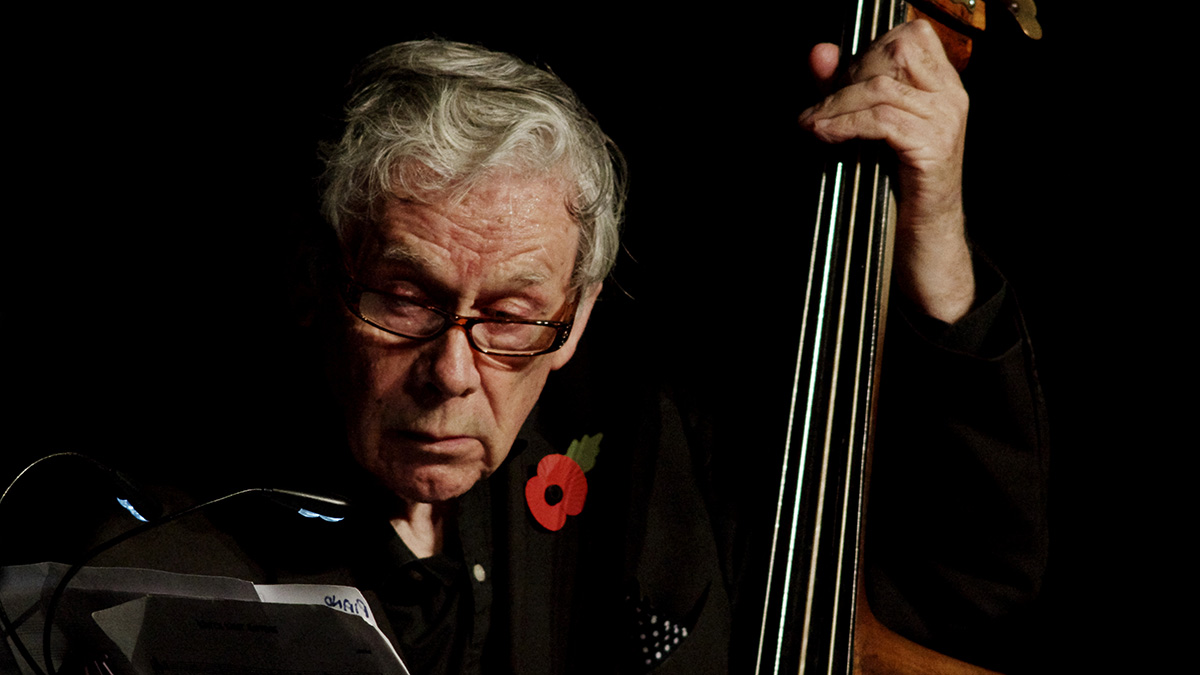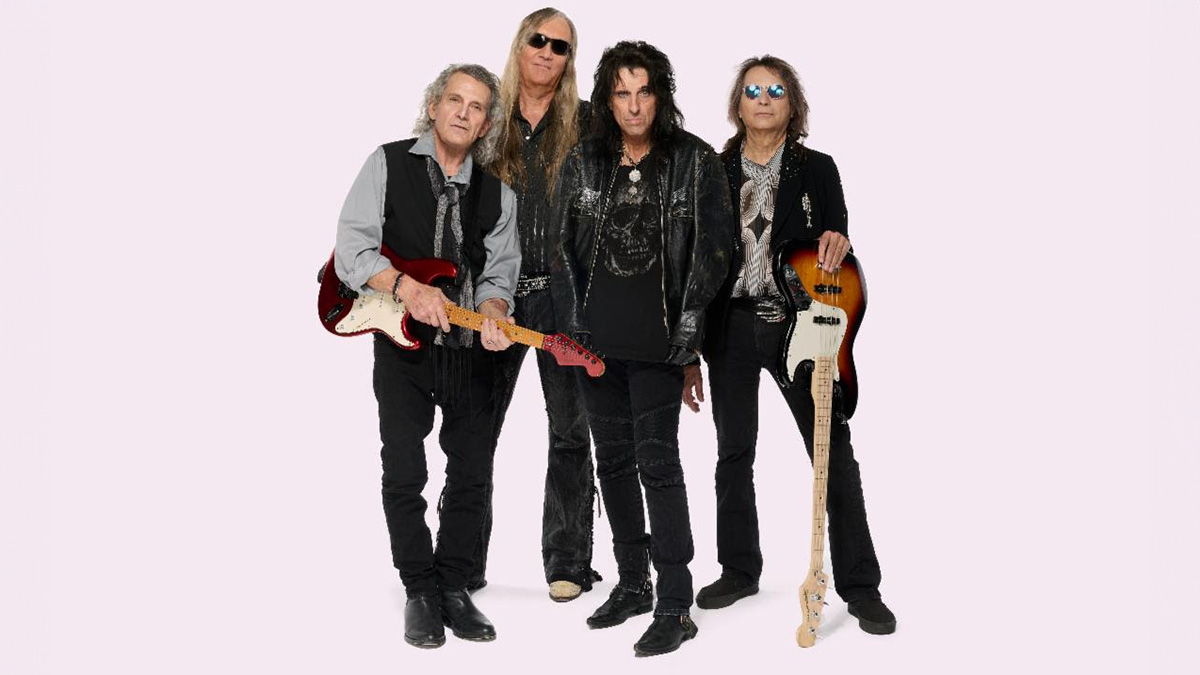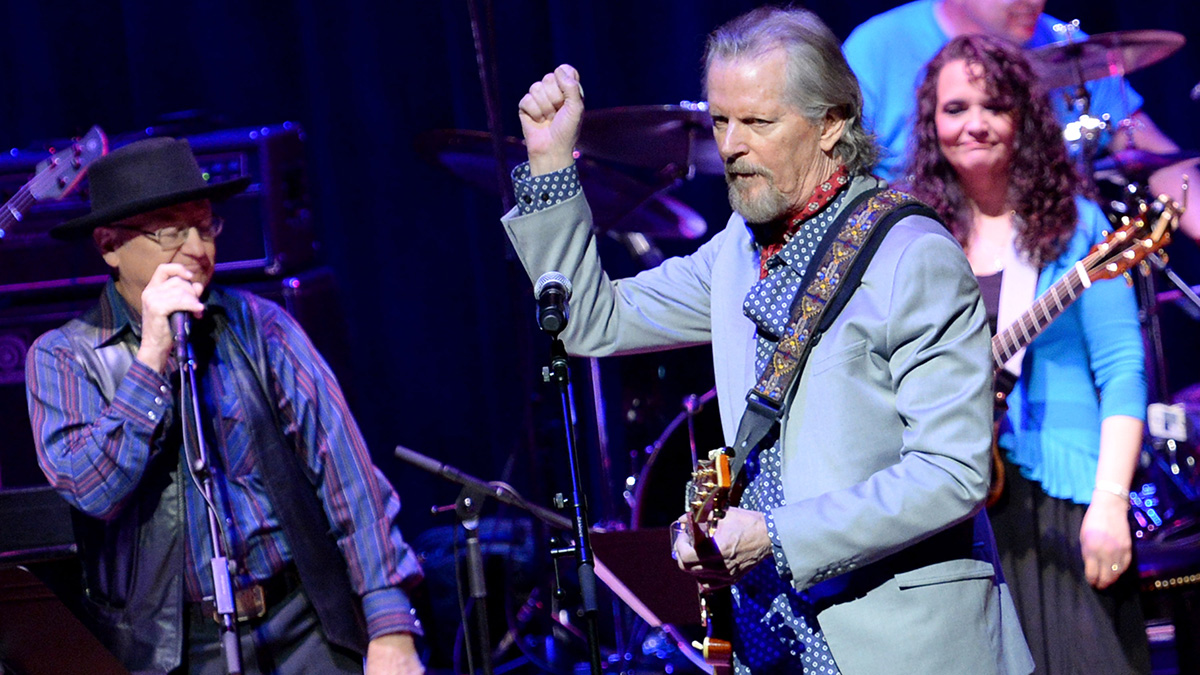“I told Lou Reed, ‘Can I get the double bass out of the car? Because this song is a bit jazzy’”: British bass legend Herbie Flowers, best known for his work with David Bowie and Paul McCartney, dies aged 86
Flowers recorded over 20,000 sessions and his distinctive jazz-informed bass heavily features on Lou Reed's Walk on the Wild Side and Bowie's Space Oddity

Bass icon Herbie Flowers, best known for his thick, jazzy-style bass tone on tracks like Lou Reed's Walk on the Wild Side and David Bowie's Space Oddity, died on September 5 at the age of 86. The news was confirmed on Facebook by a close relative.
“Lorraine’s beloved uncle, Herbie Flowers, passed on yesterday. While we knew and loved him as Uncle Herbie, his musical contributions have likely touched your lives as well. He played bass on many of the songs from the golden age of rock,” wrote Kevin J Conklin, the husband of Flowers’ niece.
The Estate of David Bowie paid homage to Flowers and his work, posting, “Aside from his incredible musicianship over many decades, he was a beautiful soul and a very funny man. He will be sorely missed. Our thoughts are with his family and friends.”
Brian Keith “Herbie” Flowers was born in Isleworth, England, in 1938 and began his musical journey in 1956, picking up the tuba when he was conscripted into the Royal Air Force. He added the double bass to his toolkit to secure a promotion within the Air Force, after which he transitioned to bass guitar.
In the early 1960s, he completed military service and promptly joined several Dixieland jazz bands. Around this time, he discovered modern jazz and first heard an electric bass at a New York nightclub, leading him to acquire a $70 Lake Placid Blue 1960 Fender Jazz Bass from Manny's Music.
His session career took off in the late '60s when he began working for esteemed producers like Tony Visconti (David Bowie, Marc Bolan), Shel Talmy (The Who, The Kinks), and Mickie Most (The Jeff Beck Group, Suzi Quatro).
In 1969, Flowers became one of the founding members of the six-piece pop group Blue Mink. Their single Melting Pot clinched the number 3 position on the UK Singles Chart that same year. Alongside Blue Mink, Flowers was also a member of CCS and the final lineup of T. Rex.
Get The Pick Newsletter
All the latest guitar news, interviews, lessons, reviews, deals and more, direct to your inbox!
However, it was his sliding, now-iconic bassline on Lou Reed's David Bowie-produced single Walk on the Wild Side that forever etched Flowers' name in rock history. “Lou had the chords written out on a piece of paper and my job was to come up with the bassline,” he told Mojo writer Phil Sutcliffe.
“What the producer wants is for you to come up with something that is a bit catchy and with Lou Reed it was easy to say, ‘Can I get the double bass out of the car? Because this song is a bit jazzy and the electric bass doesn’t work, although it did work when I put the bass guitar on a 10th above it. You could only do that once on a record because it’s such a distinctive sound.”
In addition to the Lou Reed hit, Flowers spent the 1970s recording with Marc Bolan until the T. Rex singer's death, co-writing the novelty song Grandad for Clive Dunn, performing with the progressive rock group Sky (which he co-founded), and sessioning for dozens of artists.
Over the course of his illustrious career, Flowers is said to have participated in over 20,000 sessions, recording with Elton John (Tumbleweed Connection, Madman Across the Water), Lou Reed (Transformer), Cat Stevens (New Masters, Foreigner), Paul McCartney (Give My Regards to Broad Street), George Harrison (Somewhere in England, Gone Troppo, Brainwashed), and on Jeff Wayne's Musical Version of The War of the Worlds, to name but a few.
Janelle is a staff writer at GuitarWorld.com. After a long stint in classical music, Janelle discovered the joys of playing guitar in dingy venues at the age of 13 and has never looked back. Janelle has written extensively about the intersection of music and technology, and how this is shaping the future of the music industry. She also had the pleasure of interviewing Dream Wife, K.Flay, Yīn Yīn, and Black Honey, among others. When she's not writing, you'll find her creating layers of delicious audio lasagna with her art-rock/psych-punk band ĠENN.
“When I first heard his voice in my headphones, there was that moment of, ‘My God! I’m recording with David Bowie!’” Bassist Tim Lefebvre on the making of David Bowie's Lazarus
“One of the guys said, ‘Joni, there’s this weird bass player in Florida, you’d probably like him’”: How Joni Mitchell formed an unlikely partnership with Jaco Pastorius












